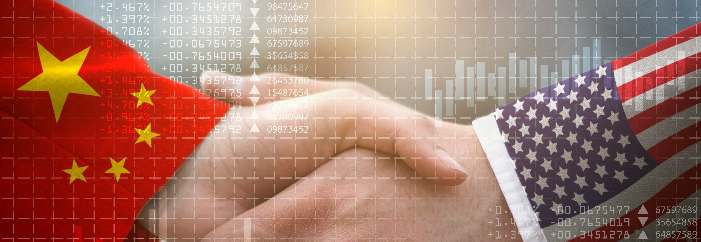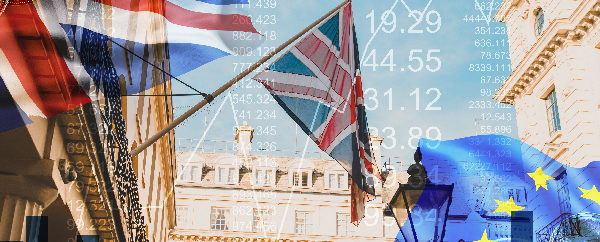There was a last-minute surprise for international investors in 2019 as US President Donald Trump tweeted on New Year’s Eve that a new trade deal between the US and China is imminent.
He wrote on the social network on December 31st: “I will be signing our very large and comprehensive Phase One Trade Deal with China on January 15. The ceremony will take place at the White House. High-level representatives of China will be present. At a later date, I will be going to Beijing where talks will begin on Phase Two!”
The news follows President Trump’s decision in mid-December to cancel the planned wave of tariffs on imports from China, including major pre-Christmas items like Chinese-made clothing, toys, and smartphones.
In return, reports say that China has promised to increase its imports of certain agricultural products from the US, including soybeans and poultry.
US stocks rose steadily throughout December, with the Dow Jones Industrial Average trending up from just over 27,500 on December 3rd to 28,645 on December 27th.
The index then fell slightly in the run-up to the New Year’s Eve festivities, but this is not unusual – and it often posts gains in the first weeks of the new year too.
So what does this deal mean for investors worldwide? Following several years of tariffs and sanctions by the Trump administration, this could be an important indicator of softening tensions between the world’s two largest national economies.
In turn, that could facilitate freer trade between the two over the course of 2020, removing some of the barriers to growth that the maturing Chinese economy has faced since the end of 2016.
A turbulent year
The past 12 months, in particular, have been a turbulent time for US-China relations.
At the end of 2018, a quarterly Nikkei survey found that almost 70% of Japanese CEOs believed the ongoing trade war was harming their business due to supply chain issues, procurement problems, trade friction, and retaliation to US-imposed tariffs.
The early months of 2019 saw tensions escalate as several major economies around the globe cut back on their use of Huawei Technologies products following the arrest of the company’s CFO.
Investors always appreciate stability over uncertainty and will be watching closely on January 15th to make sure the announced Phase One Trade Deal is signed and sealed at the White House.
Beyond that, the timetable is unclear for talks on Phase Two, but the momentum is heading in a positive direction.
That could mean 2020 is the year for increased trade between the US and China on consumer goods and agricultural products – making those and whole-economy indexes the stocks to watch over the coming weeks.
Where to invest
As one of the BRIC economies, China has been regarded as a fast-growing emerging market since the start of the millennium, but the past few years of tariffs and trade tensions have taken their toll.
The Shanghai Stock Exchange (SSE) Composite Index peaked at almost 6,000 in the autumn of 2007 but fell to barely more than 1,800 just a year later.
In June 2015 it once again poked above 5,000 briefly, but since 2016 its long-term value has been around the 3,000 mark.
If this new trade deal restores a significant degree of activity to the Chinese economy, it might be expected to have positive effects on the SSE Index, but the blistering growth of 2005-07 ahead of the global recession now seems like a distant memory.
The US, on the other hand, has grown consistently since early 2009 with the Dow up from 7,000 to over 27,000 in that time, and any short-term falls have tended to correct themselves quickly.
As such, if you don’t want to gamble on a less certain Chinese economy, it could be worth buying into an ETF that tracks the Dow – if you believe the growth of the past decade can be sustained into the 2020s.
Of course, you could opt to buy into both economies, giving you access to the historically consistent growth of the Dow while also tapping into any improvement in the fortunes of the SSE over the next 12 months and beyond.
https://twitter.com/realDonaldTrump/status/1212014713808273410
https://www.bbc.co.uk/news/business-50960490
Disclaimer: The information provided here is not investment, tax or financial advice. You should consult with a licensed professional for advice concerning your specific situation.




